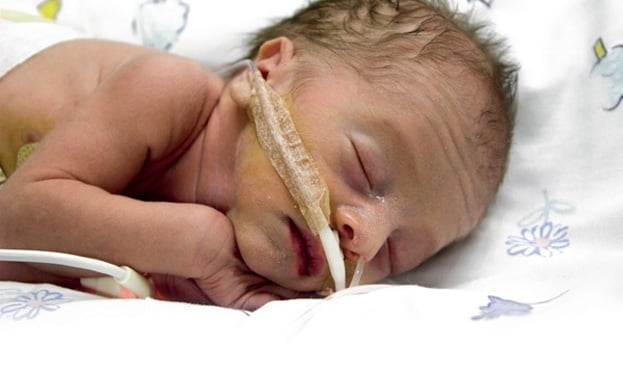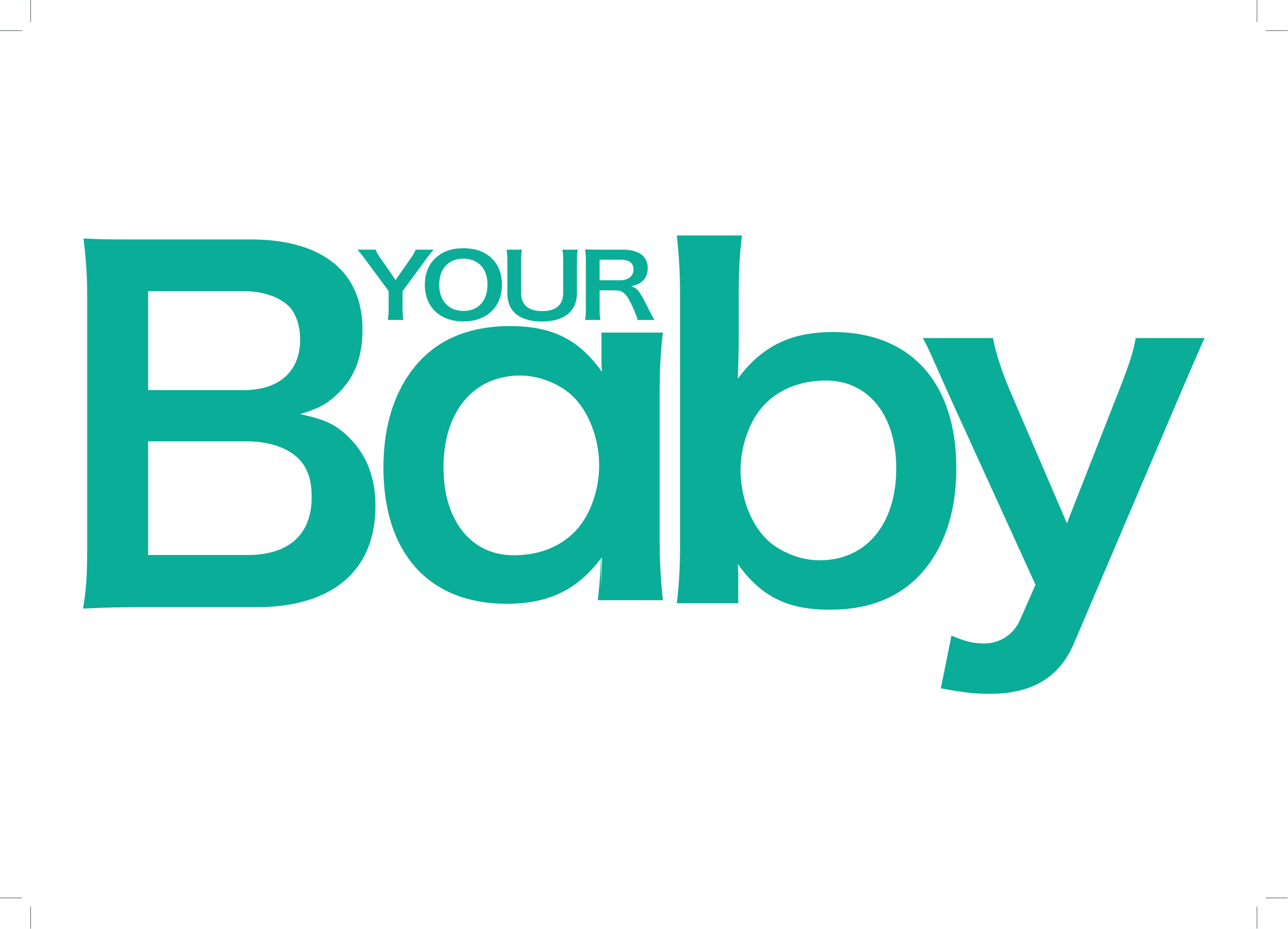
Your early arrival is a blessing, but brings with him a specific set of circumstances to get used to. Over the coming weeks, you’ll get used to how your baby looks, what he needs and how to look after him. In the meantime, here are some facts that will help you along.
1. You are not alone
The early arrival of your baby can be quite traumatic, but many moms have been where you are now. Approximately 14 percent of babies born in private care in South Africa are premature. This statistic climbs to as much as 23 percent in babies born in public health care. So you have a ready-made support system in the other moms visiting the NICU and their babies –get to know them. It also means that maternity hospitals and doctors have lots of experience looking after tiny babies, so your little one is in good hands.
2. There's a good chance of survival
Thanks to ongoing advances in medical science, more than 90 percent of babies born prematurely and weighing 800 grams or more will survive. As a general rule, the smaller the baby and the younger the gestational age, the greater the chance of complications.
3. He looks a little different
Your preterm baby’s size and the sight of his fragile body may alarm you. He will be very small and his head may appear too big for his body. The reason for this is that preterm babies lack the subcutaneous fat that fills babies out in the last few weeks before birth. Your baby’s skin colour may also be reddish and transparent. Depending on his gestational age, he may also be underdeveloped in various areas – for instance, some preterm babies have no nails yet, or the genitals appear immature.
4. Size matters
Your baby’s prognosis will depend on a number of factors. Generally babies born at 26 weeks and later have a greater chance of survival, as a preterm baby’s chance of survival increases according the time it is born. A baby born earlier is much smaller and less developed and will probably need a prolonged period of medical care. Other factors that play a role are size, the maturity of the organs (lungs in particular) and whether there is an infection or other medical problem.
5. Your baby needs you
All babies, but particularly preterm babies, thrive on a mother’s touch. According to Dr Welma Lubbe, clinical education specialist and head of the South African Neonate, Infant and Toddler Support Association (Sanitsa), holding your baby against your chest helps to improve his physiological stability, alertness levels, breastfeeding success and bonding.
Depending on your baby’s medical condition, you may be able to help feed or hold him, even though he is attached to monitors. Discuss with your doctor whether you can implement this with your baby. Even if you can’t hold your baby, you can still give him positive touch, which also has benefits and is an essential component of preterm care. Ask the nurses if you can hold his hand with your finger. Your baby needs your love and your touch.
Try to be involved in your baby’s care, to the extent that you can. Scrub your hands well (infection is always a danger in the NICU and prems are particularly at risk) and gently stroke your baby’s arms or legs, if the medical staff recommend it.
6. The hospital is part of your life
Your baby will be admitted to the neo-natal intensive care unit which is equipped to give premmies the care they need, under the watchful eye of expert doctors and nurses. It is a strange environment at first, with its medical equipment and low lighting, but this is the best place for your baby at this time. It’s hard to see your tiny infant attached to tubes and wires, but it’s comforting to know that these things enable him to be fed and for his vital signs, breathing and temperature to be monitored. It’s not uncommon for premmies to spend an extended period in hospital. Most stay until around their intended due date, but other factors that influence when they can go home include being able to breathe on their own, feeding by breast or bottle without problems and being able to sustain body temperature.
7. Your premmie has special needs
Because they have so little fat on their bodies and they are not fully developed, premature babies have difficulty maintaining their body heat. Incubators and other machines are used to keep them warm and at a constant temperature. The other important need is for nutrition. They grow at a fast rate, so their nutritional requirements are relatively high, but at the same time their digestive systems are underdeveloped and they are unable to suck directly from the breast or bottle. Milk is fed to the baby’s stomach via a tube. Consider breastfeeding your premmie. At first, you will have to express breastmilk to be fed via tube. If you persist, you may be able to switch your baby to the breast when he is strong enough and mature enough to suckle. If you can’t, your baby will be fed with formula specially designed for preterm babies.
8. There may be medical problems
Dr Lubbe says, ”Although technology has advanced very well during the last decades, the preterm baby is still exposed to an environment that is not the best for his development during this time. Scary things may also happen to your premmie. A preterm baby usually experiences a honeymoon period during the first 72 hours, when he does very well and then suddenly seems to slide backwards and develop complications. This is a normal occurrence, but very frightening for parents.
“Challenges the prem baby is exposed to during this period include physiological instability, which include swings in blood pressure, periods of apnoea, difficulty breathing with an additional demand for oxygen. Of the long-term complications are conditions such as the development of brain bleeds, retinopathy of prematurity (ROP), PDA (a hole in the heart that hasn’t closed) and complications with feeding.”
9. Your baby will develop differently
Try not to compare your baby to your friends’ babies of the same age as the milestone development of preterm babies is very different to that of babies at full term. When considering your baby’s development, don’t think of his actual age, but of the age he would have been if he’d been born on his due date.
Dr Lubbe says that to this you take your baby’s age from the day he was born (chronological age) and deduct the time he was early. For example, an eight-month-old (chronological age) who was born eight weeks premature has a corrected age of six months. Your baby only needs to reach his milestones when he reaches the corrected age, so this eight-month-old should start sitting at around six months corrected age. “Remember that preterm babies may lag behind their peers until two years of age, at which time they need to have caught up with their full term counter parts,” says Dr Lubbe.
10. Look after yourself too
It’s very normal for you to feel a rollercoaster of emotions, such as anger, depression, helplessness or guilt. Because of this, it’s important to have support. Talk to the nurses in the NICU, or join a support group (see our resources box for details). Remember that your little baby needs you now more than ever, and to give him the best possible chance you need to look after yourself too.




 Publications
Publications
 Partners
Partners










